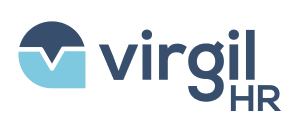Audits are a critical aspect of any business because they allow employers to analyze their business processes and practices from every angle and make improvements to move the business forward. As an HR professional, you know that your department is no different.
What you may not realize is that the term “HR audit” isn’t just one all-encompassing action. An HR audit is actually made up of a diverse range of audit types, all designed to help you deeply understand one particular aspect of your department. Take some time to learn about the different types of audits and how each plays a role in helping you improve.
Types of HR Audits
HR in any company encompasses a lot of functions, including regulatory compliance, payroll, recruiting, drafting and enforcing policies, and more. While comprehensive audits can be a good starting point, it’s important for HR professionals to drill down into specifics to ensure every aspect of the department is performing optimally.
Here are five types of HR audits you can perform to help you accomplish that goal.
Regulatory Compliance
Compliance risk exposure is something all HR teams should be continually looking to minimize, especially since a failure to comply with federal, state, and local employment laws can put the business in jeopardy of incurring fines and penalties.
Because laws shift regularly, it is important that you ensure the organization is up to date on changes and that policies and practices are aligned accordingly.
It’s a good idea to start this process by reviewing your employee handbook and ensuring all policies are up to date. This includes things like ADA, EEO, and FMLA policies, along with state specific policies. Additionally, you’ll want to look at personnel file documentation, records retention practices, required postings and notices, and Fair Labor Standards Act classifications for overtime pay.
Industry Standards
At some point, you’ll want your audit to go beyond the bare minimum of regulatory compliance to ensure your HR department is operating at its best.
Rather than seeing whether your policies and practices follow legal requirements, you’ll be looking at how they stack up against the best the industry has to offer. As an HR professional, you’ll have to use your knowledge of industry trends, standards, and best practices to successfully audit your department.
Consider things like job descriptions, the establishment of company culture, and your expectations for employee behavior. Go through your handbook once more and audit the related information to ensure you’re meeting the industry standard in all you do.
Employee Performance
Good workforce management is about more than just hiring the right people or ensuring every part of the schedule is covered. You’ll also want to make sure your current employees are performing at the level they should be. This requires a robust and consistent employee development cycle.
As you audit this area, look at the ways in which managers are providing feedback to employees and what opportunities for growth employees are being offered. Identify ways to improve the review process to allow supervisors to provide more targeted feedback so you can keep employees performing at a high level.
Overall HR Strategy
An HR strategy audit is all about evaluating the key metrics and objectives related to your overall HR strategy, such as employee turnover, employee engagement, and retention and acquisition costs, and considering how your strategy impacts and supports the overall business goals. Consider what you may need to change to improve scores and performance in these areas.
Also, analyze your compensation and benefits packages to ensure they are on par with competitors and with industry standards. If not, see how you can either adjust packages or offer perks so you can attract and retain top talent.
Function-Specific
Function-specific audits are not done on a large scale. Instead, they are a series of smaller audits that allow you to drill down deep into specific areas, such as payroll, recordkeeping, or discipline policies.
Best Practices for HR Audits
It’s not enough just to perform an audit. You must ensure that your process is effective, resulting in actionable recommendations and lasting organizational change. Follow these best practices to help you get the results you desire out of your audit process.
When and How Often to Audit
Generally, it’s best to take a proactive approach to audits rather than a reactive one. With that said, it is a good idea to audit after a major event, such as a merger, leadership transition, or period of excessive turnover.
You’ll also want to either create an annual audit schedule with mini-reviews in between or take a multi-year, multi-phase approach to a larger, more comprehensive audit. When creating your audit schedule, specify how long you’ll collect data and give dates for reporting findings, evaluating solutions, and updating on progress toward remedial action.
Who Should Audit?
There are benefits to both doing the audit yourself and getting help from a third party.
A third party can provide objective feedback from an experienced professional, but that person may have no understanding of your industry, business, or workplace culture.
However, consider the fact that if you do an internal audit, employees may lose trust in your findings because of fears about biases. If you plan to do the audit in-house, consider how much it will cost and who will be involved and plan accordingly.
Keep Your HR Department Up to Par
HR audits are important to your company because they help you understand whether your department is functioning well or hindering your organization from meeting its strategic goals. Comprehensive audits can be helpful, but it’s important that you take time to evaluate your practices and plan for growth in each area.
If you aren’t sure where to start, reach out to an expert for help. Audits have the potential to impact your company in meaningful ways, and it’s vital that you conduct them well to help the business move closer to fulfilling its mission.VirgilHR provides a comprehensive tool that allows you to automatically gather complex employment and labor law data for your audit process. To learn more, schedule a demo here.





